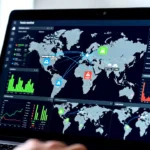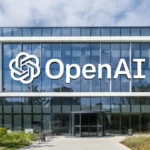Mobile application development has become a cornerstone of the digital landscape, empowering businesses and individuals to create innovative and engaging experiences for smartphone users. This guide offers a comprehensive overview of mobile app development, from its foundational concepts to emerging trends and best practices.
Understanding Mobile Application Development
Mobile application development involves creating software designed to run on mobile devices like smartphones and tablets. It encompasses a range of technologies, frameworks, and development methodologies tailored to meet the unique challenges and opportunities presented by the mobile ecosystem.
Native App Development
Native app development involves building applications using platform-specific programming languages and development environments, such as Swift or Objective-C for iOS and Java or Kotlin for Android. Native apps offer high performance, access to device features, and seamless integration with the respective mobile operating systems.
Cross-Platform App Development
Cross-platform app development helps developers to build applications that run on multiple platforms utilizing a single codebase. Frameworks like React Native, Xamarin, and Flutter enable developers to document code once and deploy it across iOS and Android platforms, reducing development time and cost while maintaining native-like performance and user experience.
Progressive Web Apps (PWAs)
Progressive Web Apps combine the best of web and mobile experiences, offering the responsiveness and offline capabilities of native apps while leveraging the web’s reach and accessibility. PWAs are built using web technologies like HTML, CSS, and JavaScript and can be accessed through web browsers, delivering a seamless user experience across devices.
Key Technologies in Mobile App Development
Mobile app development relies on diverse technologies and tools, enabling developers to create robust, feature-rich applications tailored to the needs of modern users.
Mobile App Frameworks
Mobile app frameworks provide developers with pre-built components, libraries, and tools to streamline development and accelerate time-to-market. Frameworks like Ionic, Framework7, and NativeScript offer a range of UI components, plugins, and integrations for building cross-platform and native mobile apps efficiently.
Application Programming Interfaces (APIs)
Application Programming Interfaces (APIs) enable communication between different software systems and services, allowing mobile apps to access data, functionalities, and third-party services. APIs provide developers with entry to a wealth of resources, including social media integration, geolocation services, payment gateways, and cloud storage, enhancing the functionality and capabilities of mobile apps.
Mobile Backend as a Service (MBaaS)
Mobile Backend as a Service (MBaaS) platforms provide a cloud-based infrastructure for managing backend operations, such as data storage, user authentication, and push notifications, without developers needing to build and maintain custom backend systems. MBaaS offerings like Firebase, AWS Amplify, and Kinvey simplify backend development and accelerate app development by providing scalable and secure backend services.
Mobile App Development Process
The mobile app development process is a systematic approach that successfully delivers high-quality mobile applications through planning, design, development, testing, deployment, and maintenance.
Planning and Requirements Analysis
Planning involves defining project goals, user requirements, and technical specifications and laying the groundwork for the development process. Requirements analysis helps identify key features, functionalities, and target audience preferences, informing the design and development of the mobile app.
User Interface (UI) and User Experience (UX) Design
UI/UX design focuses on creating intuitive and visually appealing interfaces that enhance user engagement and satisfaction. Designers use wireframes, mockups, and prototypes to conceptualize the app’s layout, navigation flow, and interactive elements, ensuring users’ seamless and user-friendly experience.
Development and Testing
Development involves writing code, implementing features, and integrating third-party services and APIs into the app. Developers follow best practices, coding standards, and version control systems to maintain code quality and collaboration. Testing ensures the app functions as intended, identifying and fixing bugs and optimizing performance for different devices and operating systems.
Trends and Future Directions
The landscape of mobile application development is continuously evolving, driven by appearing technologies and changing user expectations, shaping the future of mobile experiences.
Augmented Reality (AR) and Virtual Reality (VR)
Augmented Reality (AR) and Virtual Reality (VR) technologies transform mobile experiences, enabling immersive and interactive user experiences. AR and VR applications are used across various industries, including gaming, retail, education, and healthcare, offering innovative ways to engage and entertain users through immersive digital content and simulations.
Internet of Things (IoT) Integration
The Internet of Things (IoT) revolutionizes mobile app development by enabling connectivity between mobile devices and smart objects, appliances, and sensors in the physical world. IoT-integrated mobile apps offer users greater control, automation, and monitoring of connected devices, creating seamless and personalized experiences tailored to user preferences and behaviors.
Artificial Intelligence (AI) and Machine Learning (ML)
Artificial Intelligence (AI) and Machine Learning (ML) technologies are reshaping mobile app development by enabling personalized recommendations, predictive analytics, and intelligent automation. AI-powered chatbots, virtual assistants, and recommendation engines improve user engagement and satisfaction by delivering personalized and context-aware experiences, anticipating user needs and preferences.
Conclusion
Mobile application development is a dynamic and rapidly evolving field that empowers developers to create innovative and engaging user experiences across various devices and platforms. By understanding the foundational concepts, key technologies, and best practices of mobile app development, developers can navigate the complexities of the mobile landscape and leverage emerging trends and technologies to create impactful and successful mobile applications that meet modern users’ evolving needs and expectations.





